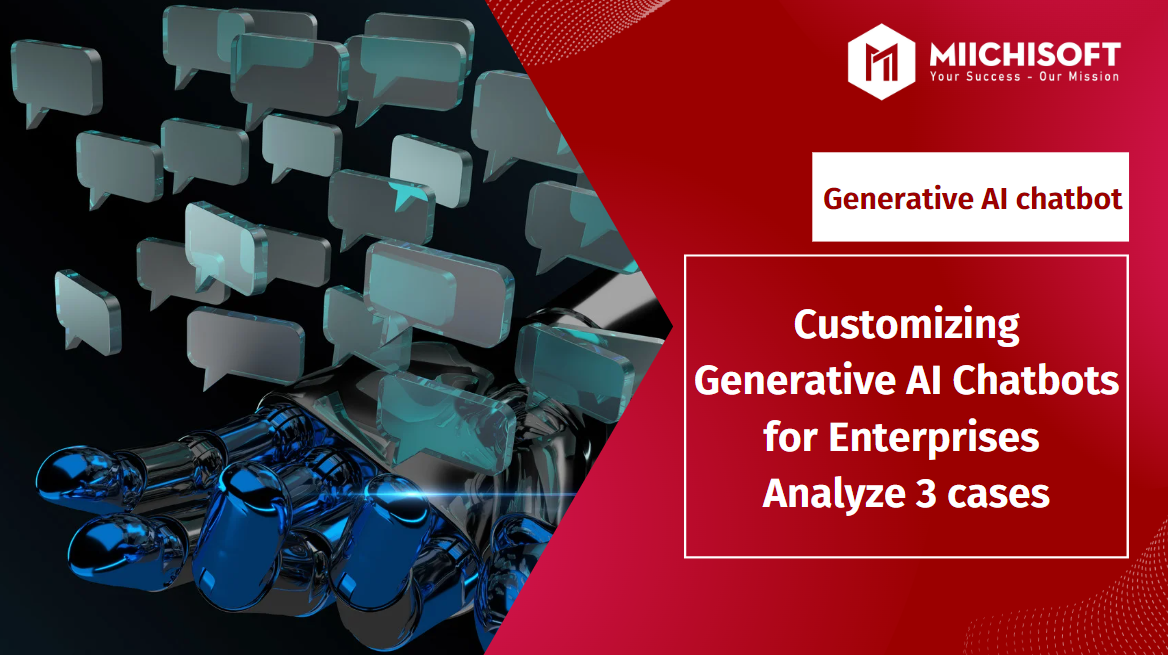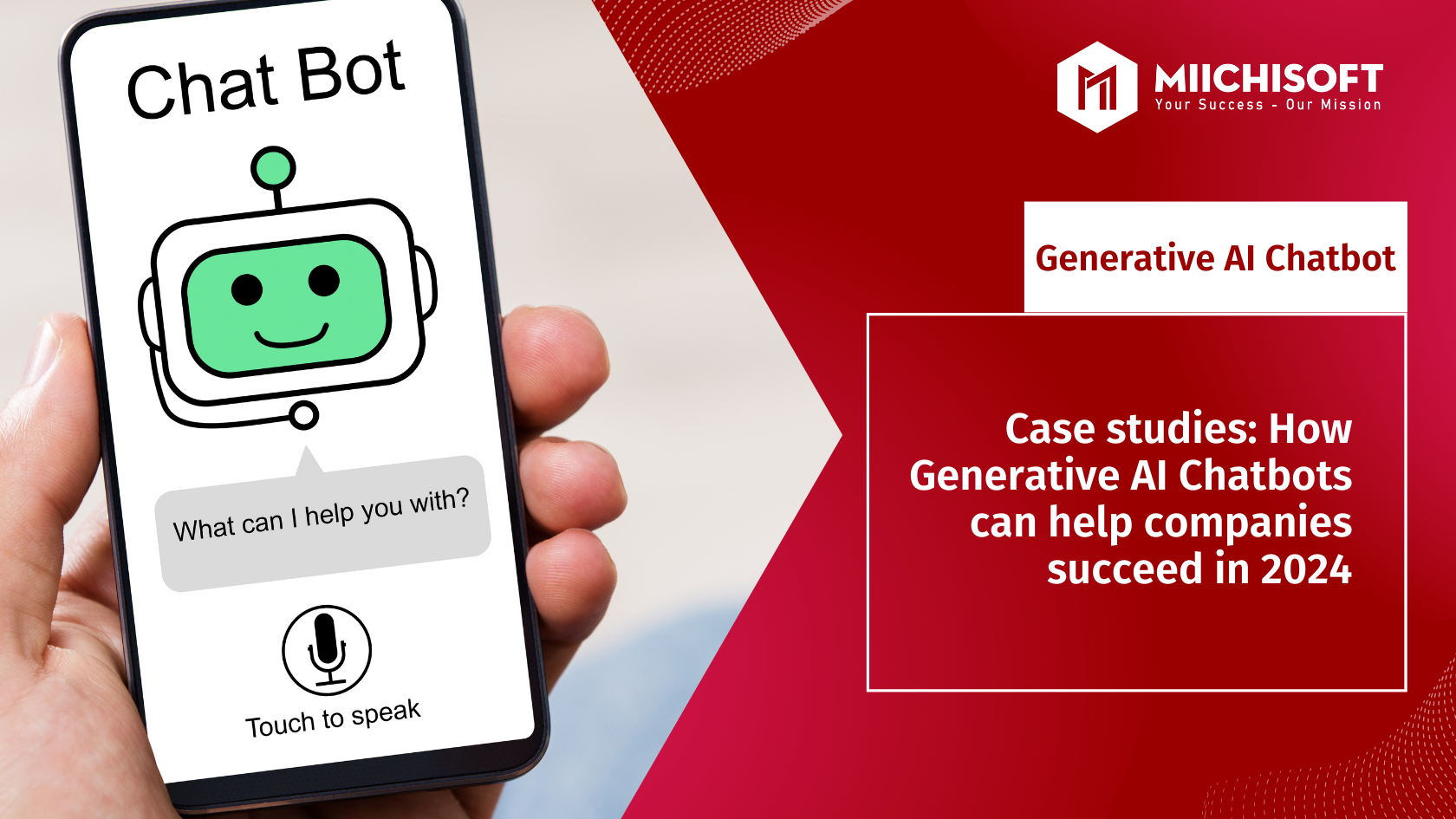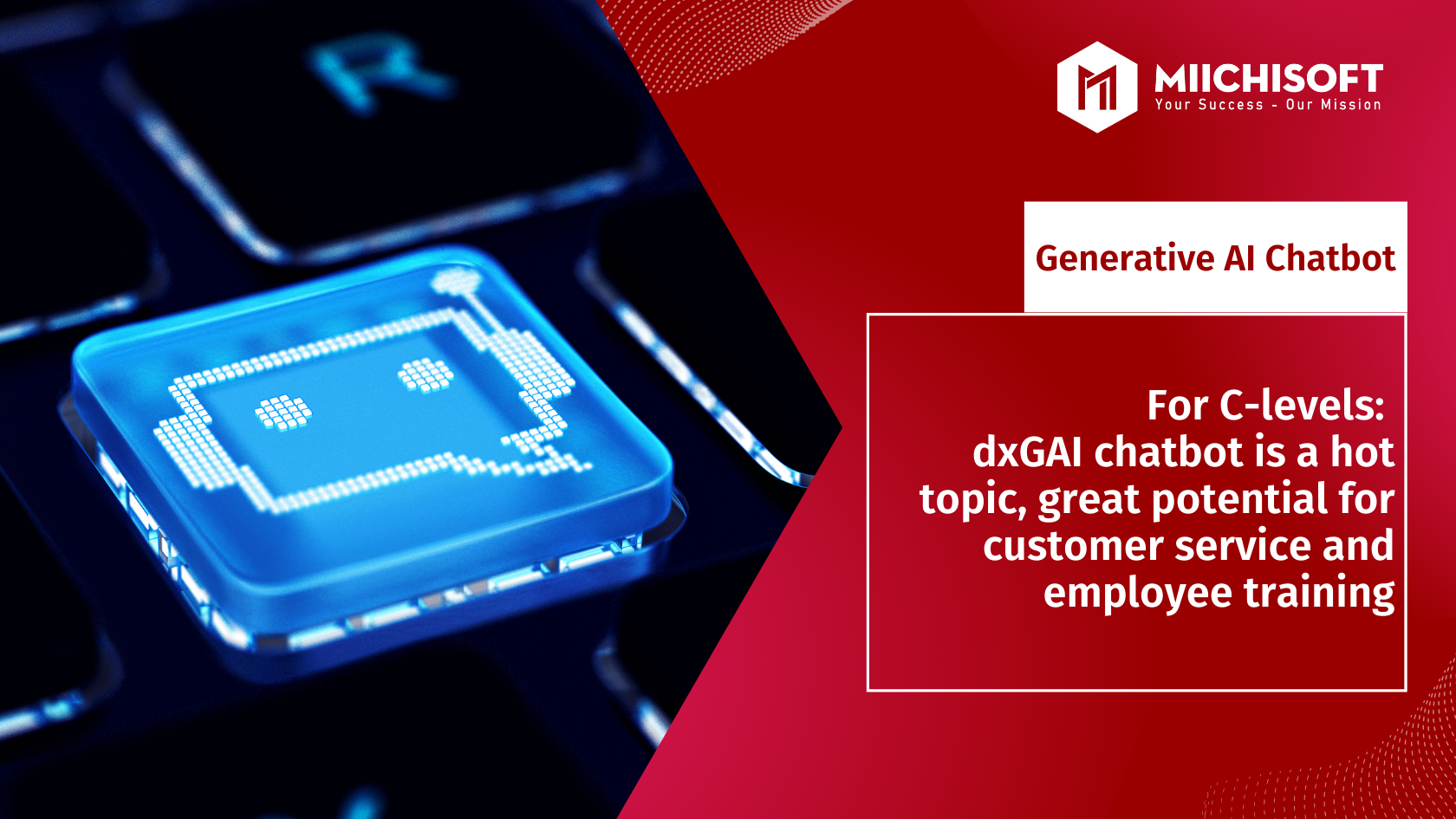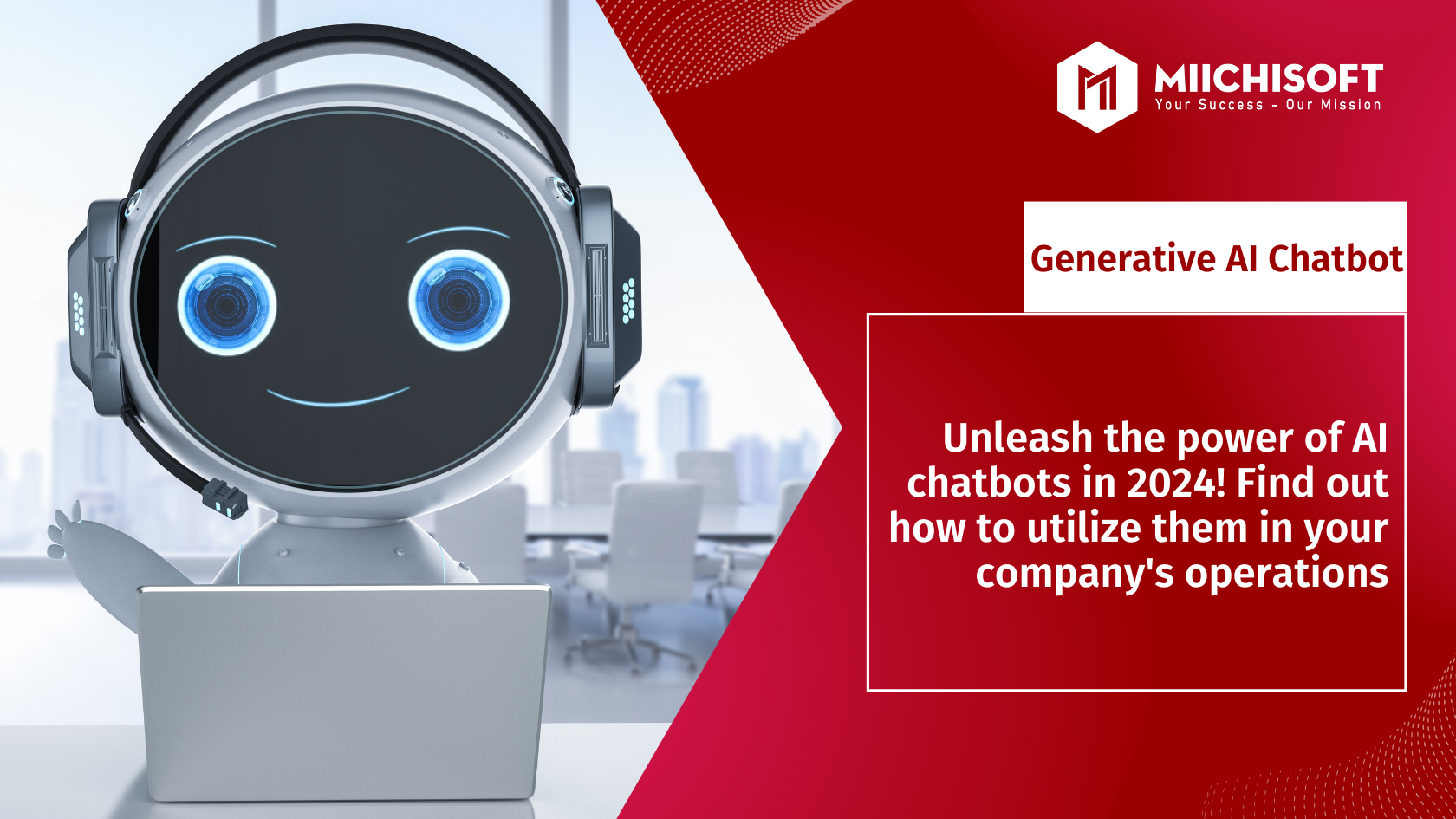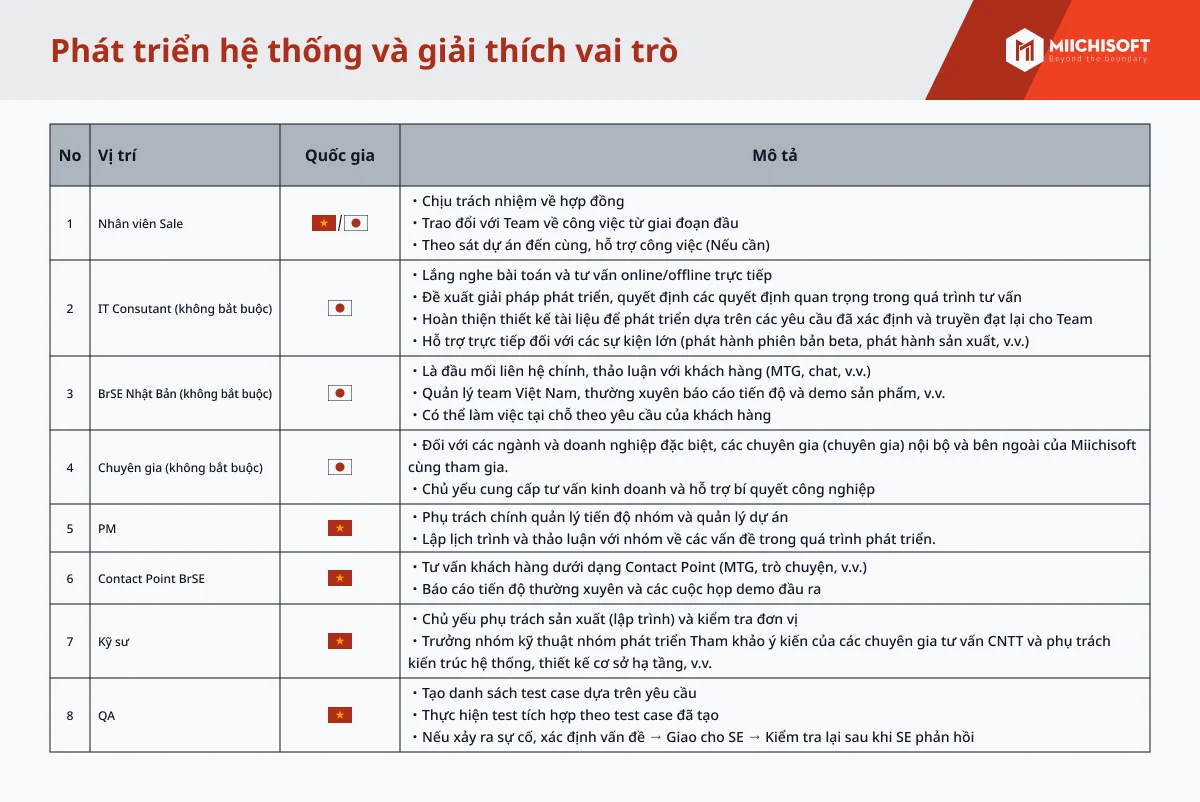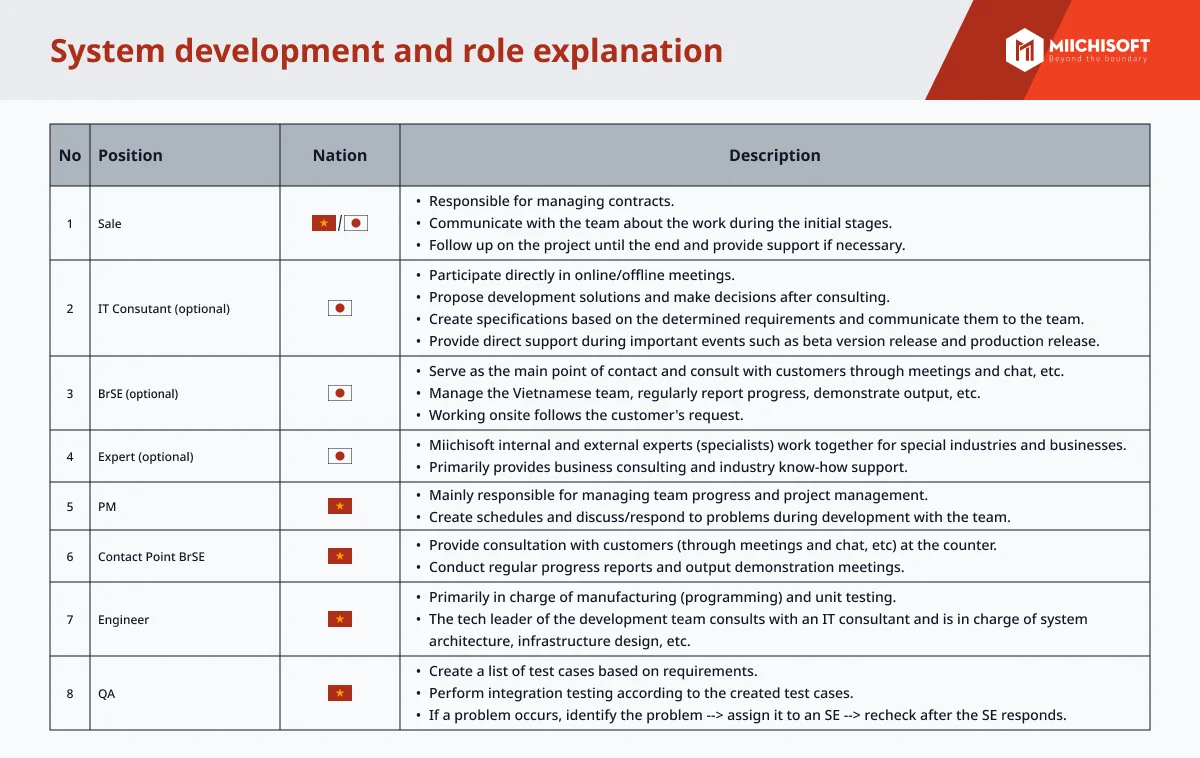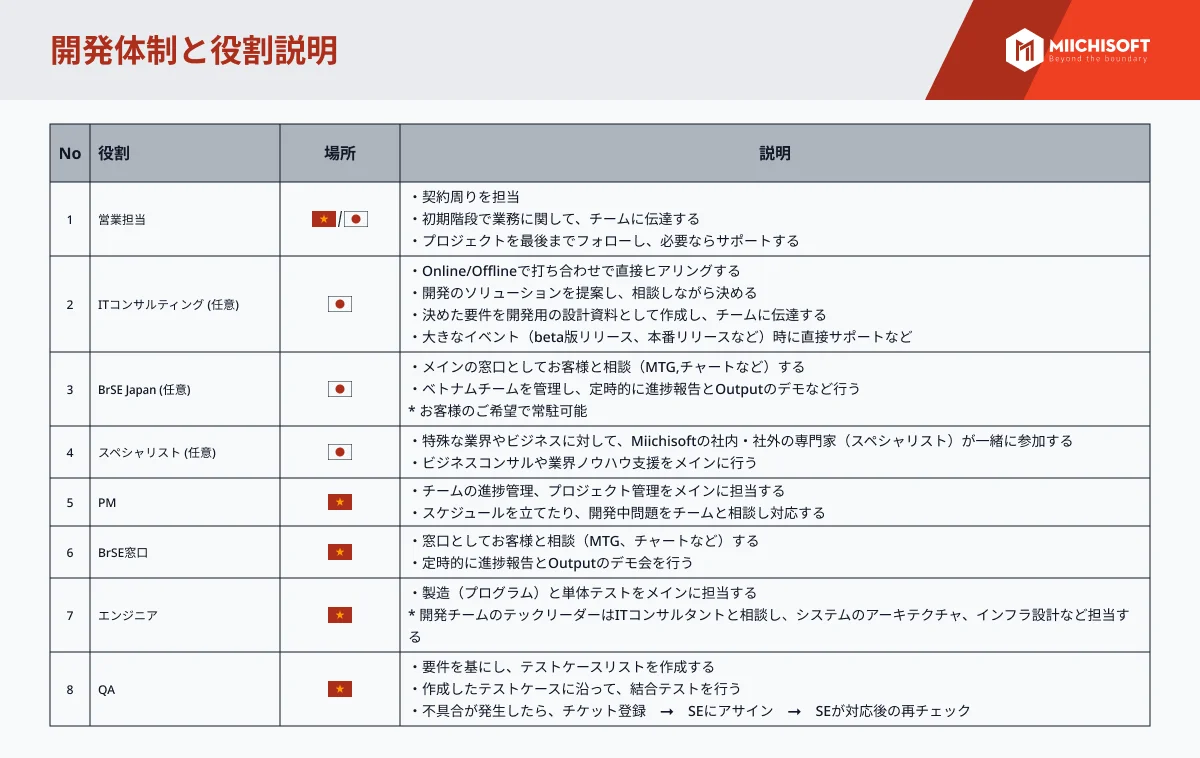In recent years, the development of generative AI technology has greatly expanded the possibilities for chatbots. They can now engage in natural conversations with users and are expected to be widely utilized for text generation, data analysis, task automation, and more. However, there are challenges in applying general large language models (LLMs) directly to meet enterprise-specific requirements for AI chatbots. Therefore, AI chatbots customization becomes essential to fit businesses’ specific needs.
This article introduces examples of AI chatbots customization in enterprises. We will explain specific use cases and implementation challenges while proposing strategies to maximize the value of AI chatbots.
Customizing Generative AI Chatbots for Enterprises
1. What are Customized Generative AI Chatbots?
AI chatbots are systems that enable dialogue with users by utilizing natural language processing (NLP) and machine learning (ML) technologies. Unlike traditional rule-based chatbots, they can achieve more human-like conversations by learning from large amounts of data. However, to effectively utilize them in business, they need to be customized to match the characteristics of the industry and company.
If you are interested in learning more about the differences between AI chatbots and regular chatbots, or the advantages of AI chatbots, check it out now!
1.1. Importance of Enterprise-Specific Customization
When implementing AI chatbots, it is essential to customize them to meet the specific needs of the enterprise. Each industry has its own unique challenges and needs, with different business processes and conversation patterns. Therefore, it is necessary to customize the chatbot’s dialogue model and UI to suit the industry. For example, in the medical field, understanding specialized terminology and ensuring privacy are important. In retail, smooth provision of inventory and delivery information is required. Chatbots customized in this way can not only solve problems more appropriately but also improve UX and increase customer satisfaction.
1.2. Possibilities of Customized Generative AI Chatbots
In recent years, with the development of general-purpose large language models (LLMs), chatbots with knowledge in various fields have emerged. ChatGPT, a representative LLM, combines rich knowledge with practical capabilities and is expected to be applied to a wide range of use cases. However, as it is not specialized for specific industries or use cases, it cannot perform optimally as is. This is where customizing LLMs to fit the characteristics of each company becomes important.
1.3. Steps for Customization in Enterprises
The steps to customize LLM chatbots are roughly as follows:
+ Understanding industry and company characteristics: Analyze conversation histories and interview employees to clarify business processes, terminology, and conversation patterns.
+ Customizing datasets: Incorporate industry-specific glossaries and knowledge bases into datasets for ML model training.
+ Customizing UI: Design the chatbot’s UI/UX to match industry characteristics, considering both visual aspects and conversation flow.
+ Establishing governance: Develop rules to promote appropriate responses and incorporate them into the LLM. Industry-specific measures are necessary for personal information protection and public order and morals.
+ Training and monitoring: After launch, continue to analyze conversation records and improve the model. It is also essential to keep up with changes in laws and service content.
Miichisoft has published a comprehensive guide to effective AI integration into enterprises, check it out now!
By reflecting enterprise characteristics in this way, chatbots become even more useful tools. Below are specific use cases.
2. Examples of Enterprise Generative AI Chatbot Customization
2.1. Customer Service Field
2.1.1. Customization for Companies in the Medical Industry
In healthcare settings, patient care and response are required 24/7/365. However, the workload of doctors and nurses has been increasing year by year. By introducing medical AI chatbots to hospital medical portals, they can automatically respond to patient inquiries and handle appointment procedures, significantly reducing the burden on medical staff.
The key point in customizing generative AI chatbots for the medical industry is to thoroughly train them to understand medical terminology and patient dialogue etiquette in the context of medical settings. By inputting medical-related data into the AI and building specialized models for each medical department through deep learning, patients can input their symptoms or questions in natural language, and the AI can immediately provide accurate answers or advice on seeking medical attention.
2.1.2. Customization for Companies in the Financial Industry
Financial institutions face a very large burden of handling after-hours inquiries and require highly specialized knowledge. Therefore, it is effective to customize AI chatbots to handle a wide range of financial services, such as explaining investment trust procedures and foreign exchange rates.
For banks and credit card companies, understanding financial terminology is crucial. By customizing generative AI chatbots to handle a wide range of financial services, such as investment trust procedures and foreign exchange rate explanations, they can effectively address these challenges.
By customizing to link external data via API, the chatbot can appropriately advise on the latest market conditions and campaign information during conversations, realizing high value-added services. Furthermore, knowledge of financial regulations and understanding of securities terminology can be incorporated into the learning model, and past conversation logs and other data can be utilized to train response patterns for common customer questions.
2.1.3. Customization for Companies in the Retail Industry
In the retail industry, providing product information and simplifying the purchasing process are urgent issues. By introducing AI chatbots optimized for stores and e-commerce sites, it becomes possible to both improve user experience and reduce costs.
As the digital shift in the retail industry accelerates, there is a rapidly growing demand for AI chatbots to support product searches and purchasing processes. By preparing datasets of product catalogs, pricing information, inventory status, and shipping information, and training chatbots with this data, they can immediately respond to customer inquiries. Additionally, by learning context from past product review data, accurate product recommendations tailored to customer needs become possible.
Furthermore, implementing recommendation functions that analyze preferences from behavioral logs and suggest recommended products can be expected. By integrating e-commerce functions into the chatbot, it becomes possible to easily complete purchase procedures within the conversation, providing a seamless and consistent customer journey.
2.1.4. Customization for Companies in the Hotel and Travel Industry
Travelers have various questions, and generative AI chatbots can address these needs. By pre-learning hotel facility information and local tourist information, they can answer diverse questions. Furthermore, chatbots can flexibly respond to guest requests. For example, they can recommend restaurants and sightseeing plans according to guest preferences, or arrange room service and amenities. They can handle inquiries about accommodation facilities and surrounding tourist spots, as well as support tasks such as restaurant reservations.
Moreover, customization for multiple languages can realize global customer service. Language barriers are a significant challenge for travelers and tourists. The multilingual support function of chatbots is a great help in this regard. By preparing datasets in many languages and incorporating interpretation functions, smooth communication with guests from around the world becomes possible.
2.2. Administrative Support Field
The general affairs department is responsible for various tasks, including responding to various internal inquiries and guiding procedures. AI chatbots can efficiently handle these routine tasks, significantly reducing the workload of general affairs staff.
Specifically, chatbots can quickly and accurately respond to employee inquiries about overtime applications, annual paid leave procedures, and confirmation of internal regulations. Furthermore, they can provide careful guidance to new employees on onboarding procedures and how to use internal systems. This allows employees to concentrate on their primary duties, leading to improved productivity.
Additionally, since chatbots can respond 24/7/365, they can also solve time difference issues in global companies.
2.3. Human Resource Development Support Field
Human resource development is a crucial issue for the continuous development of companies. AI chatbots can also be useful for corporate human resource development and training. They can support effective human resource development through the provision of training materials and individual question responses.
Employees can ask questions and obtain necessary information through chat. For example, in new employee training, they can ask the chatbot questions about company policies and business flows. Furthermore, it is possible to incorporate various training contents such as product and service knowledge and compliance training into the chatbot. Training chatbots can explain internal rules, work procedures, and product/service descriptions in an easy-to-understand dialogue format. Moreover, they can flexibly respond to additional questions according to each employee’s level of understanding. This enables efficient knowledge sharing.
Dialogue-based learning is more effective than traditional one-way training styles, and understanding is deepened through two-way interactions. The ability to ask questions repeatedly is also a significant advantage. Employees can ask questions about unclear points at any time and receive appropriate feedback, accelerating skill improvement.
AI chatbots are currently integrated into many business processes and can bring significant benefits to any company looking to improve performance, enhance internal processes, and increase sales. For executives, check out this article to know more about the potential of the dxGAI chatbox for your business.
3. Introduction to dxGAI Chatbot
3.1. What is dxGAI Chatbot?
dxGAI chatbot is a high-performance solution developed by Miichisoft, equipped with state-of-the-art generative AI and Retrieval Augmented Generation (RAG) technology.
*Retrieval Augmented Generation (RAG) can retrieve relevant information from large unstructured datasets and pass that information to generative models to produce detailed and accurate responses. RAG is a combination of information retrieval and text generation models. In other words, it fills the gap in how large language models (LLMs) operate. Much higher response accuracy can be expected compared to conventional AI chatbots.
Miichisoft’s dxGAI Chatbot
Our dxGAI is an AI chatbot solution that can be highly customized to meet enterprise needs. It utilizes cutting-edge natural language processing (NLP) and machine learning technologies to achieve natural dialogue and seamless experiences.
3.2. Features of dxGAI Chatbot
The features of Miichisoft’s dxGAI chatbot are as follows:
+ UI Customizability: dxGAI’s UI can be freely customized to match the company’s brand image. Various elements such as logos, fonts, and colors can be adjusted.
+ Ease of Implementation: dxGAI chatbot is a cloud-based solution that is very easy to implement. No special infrastructure setup is required, and operation can begin in a short period.
+ Integration with Various Tools/Platforms: dxGAI chatbot can be integrated not only with websites but also with various tools (Salesforce, ZenDesk, Microsoft Teams, LINE, Slack, etc.) and platforms (iOS, Android, etc.).
+ Detailed Analytics Function: dxGAI chatbot is equipped with advanced analytics functions to analyze usage and response performance. This is useful for identifying areas for improvement and calculating ROI. The advanced analytics function of the dxGAI chatbot organizes data and reports on interactions between the chatbot and customers, which is beneficial for improving the effectiveness of the chatbot.
+ Support for Over 80 Languages: dxGAI supports over 80 languages, sufficiently meeting the needs of global companies.
3.3. Value Provided by dxGAI Chatbot
What value can Miichisoft’s dxGAI Chatbot provide to your business?
+ dxGAI Chatbot Creates Accurate and Reliable Responses
– Utilizing RAG technology, dxGAI accurately extracts relevant information from large amounts of data and generates high-quality responses. It can provide reliable information.
– dxGAI can have advanced knowledge specific to companies and industries by utilizing various external data sources (technical documents, industry data, etc.) and integrating with internal company data (FAQs, product information, knowledge bases, etc.).
– Furthermore, through continuous automated learning, dxGAI continuously improves its performance through interactions with users. Regular retraining is also possible, allowing it to always provide the most up-to-date knowledge. As a result, it can provide the most accurate and reliable responses to customer needs.
+ dxGAI Chatbot Can Support Lead Generation
– It collects potential customer data and provides a personalized purchasing experience based on the “customer journey map.”
+ dxGAI Chatbot Ensures Data Privacy and Security
– dxGAI respects the confidentiality of corporate data to the maximum extent and implements industry-leading security measures. It is a solution that can be implemented with peace of mind.
4. Conclusion
AI chatbots have the potential to greatly contribute to business efficiency and cost reduction for companies. In this article, we introduced various use cases, including general affairs operations and human resource development.
AI chatbots customization is the key point to fit your company’s business processes. The appeal of AI chatbots lies in their high flexibility and ability to be adjusted according to needs. Let’s maximize the power of AI and use it as a driving force for corporate transformation.
Miichisoft’s dxGAI solution, with its RAG technology, advanced generative AI technology, and flexible design, accelerates enterprise digital transformation, supporting the maximization of operational efficiency and the provision of excellent customer experiences. In today’s competitive business environment, dxGAI will be a driving force for innovation, realizing sustainable growth for companies.
Please take a look at the details of dxGAI and grasp the opportunity for further business expansion through AI utilization.


